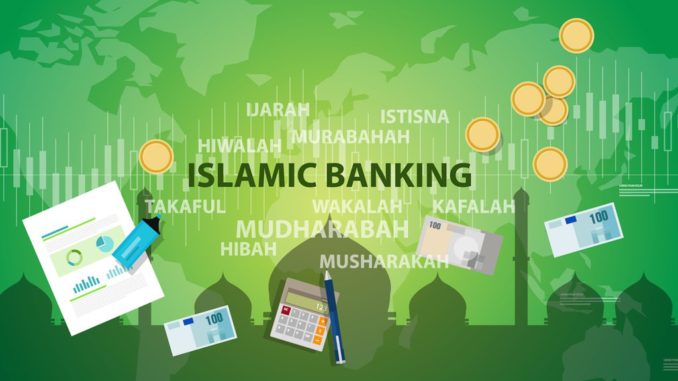
More Nigerian banks would be wise to have Islamic banking windows. That way, they are able to keep all the business of their sometimes affluent Muslim customers, while still availing them of conventional banking services. Global banks already do this for their Middle Eastern customers.
Say you are approached by a banker, who then makes you a home acquisition proposal that converts your rent payments into equity, and thus enables you to own your home after a predetermined period. Naturally, you would be excited. How likely is it then that as a non-Muslim, you would balk at the proposal when it comes to light that what you were just now giddy about is actually Islamic finance? Very little; not if you were rational, at least. Of course, it could be more receptive to your sensibilities if it is called “non-interest banking”; which is just as well. Try imagining, though, how many homeowners there could have been by now if Nigerian banks adopted such an approach to financing home ownership. If Islamic finance is to thrive and become attractive to all and sundry in Nigeria, however, conventional commercial banks would have to embrace it. At the moment, only one – Stanbic IBTC Bank (with a 2016 total asset of 1.1 trillion naira) – has an Islamic banking window or subsidiary. There is one fully-fledged Islamic bank, though; that is Jaiz Bank (with a 2016 total asset of 68 billion naira). Clearly, the former would have unmatched scale and network advantages that could be easily transferred to its non-interest banking arm; efficiency, for instance. Hence, this is why Islamic finance stands a better chance in Nigeria (and elsewhere, for that matter) if other conventional banks open their own Islamic windows.
CBN Steps Up
In late August 2017, the Central Bank of Nigeria (CBN) introduced two liquidity management instruments for non-interest financial institutions (NIFIs), a “Funding for Liquidity Facility (FfLF)” and “Intra-day Facility (IDF)”. Hitherto, there were three discretionary liquidity management instruments for NIFIs, namely, a “CBN Safe-Custody Account (CSCA)”, “CBN Non-Interest Note (CNIN)”, and “CBN Non-Interest Asset Backed Securities (CNI-ABS)”. So how are the recently introduced ones any different or useful? Well, conventional banks are typically able to place their surplus with each other during the course of a business day or overnight, and vice versa when short. This enables them to manage their clearing operations, for instance. Depending on the circumstances, like when the interbank market is tight, banks could go to the CBN for such transactions. In both cases, Islamic banks and windows are excluded because they are barred from earning or paying interest. So hitherto, all an Islamic bank or window could do was to place its surplus funds with the CBN either as a CSCA or CNIN. But these are discretionary. These new instruments would thus provide tremendous relief for NIFIs. To access them, the CBN requires that they either are in clearing with a temporary debit balance and/or have a liquidity problem. This is the primary distinguishing criteria, aside placing collateral with the CBN that is at least 1.1 times the transaction value. In a February 2017 report, the IMF mentioned the lack of such sharp liquidity instruments as a key risk to the financial systems of countries where there are Islamic banks. Needless to say, the CBN’s recent move is a welcome development.
A conventional bank looking to open an Islamic window must be mindful of some potential pitfalls, though. Customers might be sceptical about whether it is truly able to separate its Islamic banking arm from its interest-earning entities.
Keep Your Customer
More Nigerian banks would be wise to have Islamic banking windows. That way, they are able to keep all the business of their sometimes affluent Muslim customers, while still availing them of conventional banking services. Global banks already do this for their Middle Eastern customers. Of course, there is the oft-cited refrain about technical capacity. This does not necessarily apply to traditional Islamic finance products. Problems have mostly arisen with so-called hybrid and exotic products for which compliance with the strict Islamic law criteria can sometimes be fuzzy or inconclusive because of their sheer complexity. Such is the complication that it is sometimes difficult to distinguish them from conventional banking products. It does not help, of course, that the evolutionary nature of Islamic finance also means legal clarity and certainty have been somewhat elusive. There is some level of standardisation with traditional or so-called plain-vanilla products, however. Take the standard savings account from an Islamic bank. Instead of the quite meagre fixed interest rate a customer currently gets from a conventional bank, there is an opportunity to partake in a potentially higher return. How so? An Islamic bank pools its customers’ deposits and puts them in Shariah-compliant investments (like shares of companies that are involved in ethical businesses; so a brewer or tobacco producer would not qualify, for instance). There is a downside, though. The customer also shares in potential losses. This is in accordance with the Islamic finance principles of risk sharing and that investments be in real economic activities. In both instances, the CBN-approved sharing formula is a 70:30 ratio, with the bank getting the larger share. Statutorily, returns are shared monthly.
Potential Challenges
A conventional bank looking to open an Islamic window must be mindful of some potential pitfalls, though. Customers might be sceptical about whether it is truly able to separate its Islamic banking arm from its interest-earning entities. A commingling of funds would be antithetical to the whole scheme. There is also the possibility of regulatory arbitrage, where the bank potentially transfers risk between the two arms, depending on which is favourable. The CBN seems well-geared to handle such potential abuses.
Rafiq Raji, a writer and researcher, is based in Lagos, Nigeria.
END

Be the first to comment